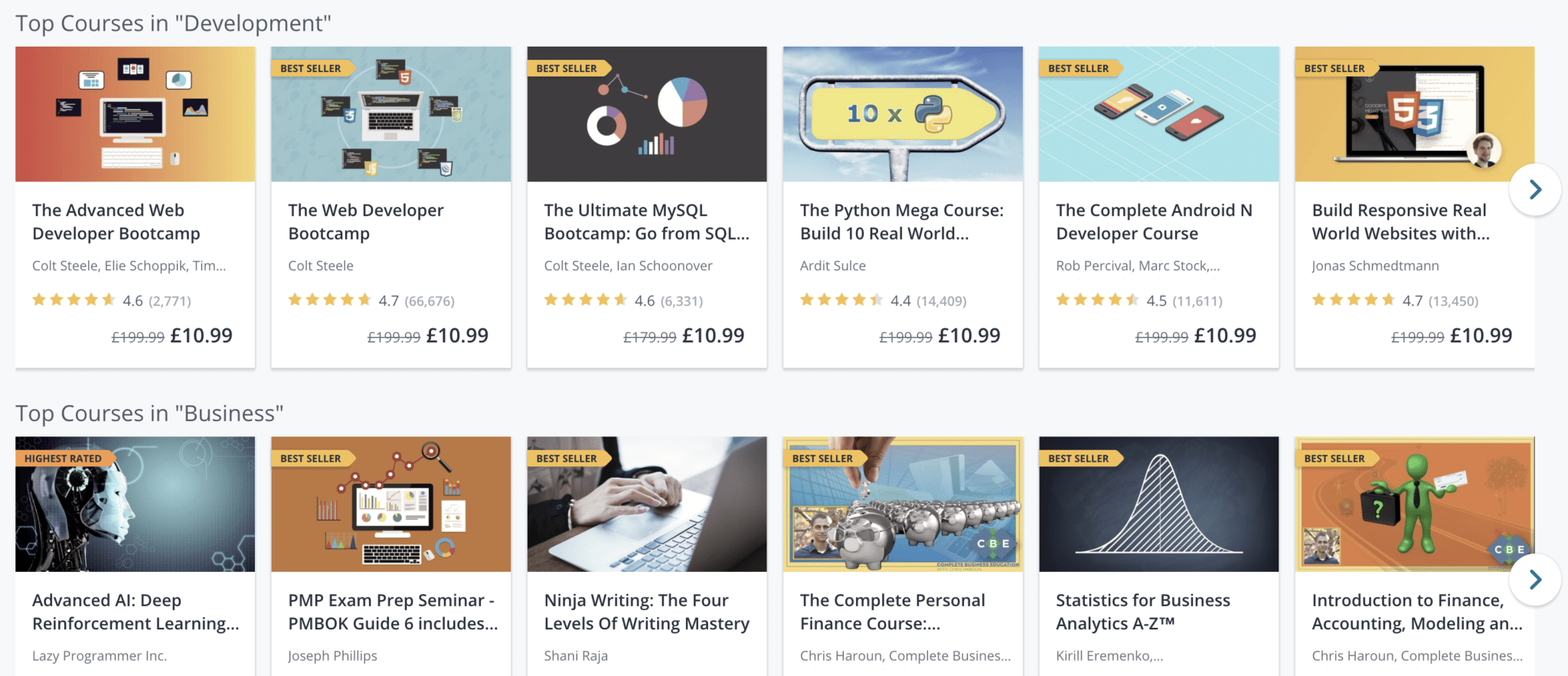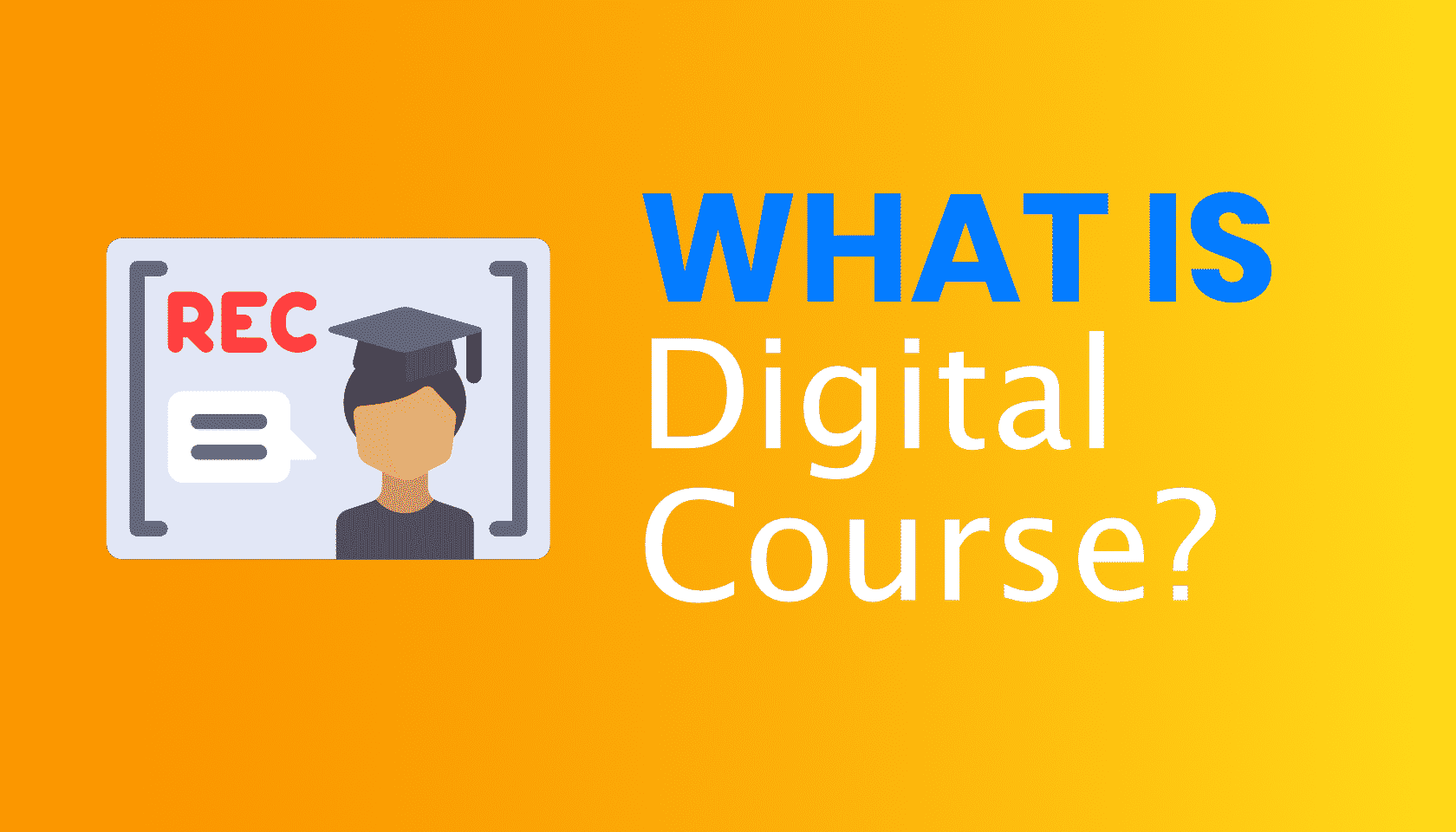
Peter Jobes
Definition of Digital Course
Digital courses are growing in popularity, especially with platforms like Udemy and Teachables being launched into mainstream acceptance. But just what are digital courses?
Well, quite simply, they’re like any other learning course you may find at a learning institute. Except they take place online and tend to be in far more specific subjects (e.g. How to invest in Cryptocurrency for Beginners) than available at standard learning institutes.
The accessibility of digital courses has solved a long-standing problem in adult education. You’ll be hard pushed to find someone who isn’t interested in broadening their knowledge in a subject, and often the only thing holding large numbers would-be students back from further education in yesteryear was the inconvenience of attending classes and meeting tutors.
Today, thanks to the tapped potential of the internet and studying remotely, we can attend courses on just about any subject from the convenience of our homes, after a day at work, or even on our morning commute.
So what exactly is a digital course? Well, a digital course, or eLearning course, can take many shapes and vary depending on how they’re constructed. There are plenty of basic eLearning courses that teach its users through slideshows of information and insight as well as the use of simple quizzes designed to keep the reader engaged. More premium eLearning can be fully web-based and offer an immersive experience through sights, sounds, and full interactivity. There are also plenty of software and application-based digital courses that are designed to comfortably perform on many platforms and on the go.

Udemy is one of the market leaders in the increasingly popular online education field, with a website boasting some 55,000 courses developed by ‘Instructors’ that have signed up to the site.
For a relatively small fee, users can pick up a course on Udemy with concentrations in the most esoteric of fields. From learning to ‘master the Rubik’s Cube in four days’, to ‘building sacred relationships that stand the test of time’, all the way through to ‘how to make soap – homemade soap making for beginners.’ With websites like Udemy, it seems that anyone can find their niche.
This brings us to the digital commerce behind eLearning. If you have a niche knowledge set that you want to share on a subject, you can do so by setting up a digital course. By using a reputable host site, you’ll guarantee that your tutelage gets noticed and you can begin to profit from educating others.
It’s worth considering how you’ll plan to engage your audience and your approach for making yourself into a calming but informative educator. Once you’ve figured out the teaching style that’ll keep your students coming back, then the sky’s the limit!
Creating an eLearning course also helps your exposure and thus, your other networks too. Happy customers will comfortably be able to find both yourself and your website which will expand your traffic and reputation.
As with much of the information you share online, digital sharecropping comes into play. This means that all of your hard work is in the hands of your host site, or your platform. If you use Udemy to offer your digital course to a large audience, then your course is subject to the whims of that site – they can remove it at no notice or shut their entire pages down, costing you money as well as potential exposure.
Tip: Concentrate on finding your niche subject to share your knowledge on when creating a digital course. It may seem intuitive to educate in a more general subject to increase your audience catchment, but with such a dense field of competitors it pays to be more intricate. For example, if you’re thinking of running a course on ‘Increasing your Social Media Presence,’ perhaps fine tune it to ‘Increase your Social Media Presence on Twitter.’
Further Reading:
1. Why Should SEO go Hand-in-Hand With UX
2. How to Conduct an E-Commerce Website Audit Like a Pro
3. 33 Critical Website Mistakes You Should Avoid At All Cost

Peter Jobes
Content Marketing Manager

